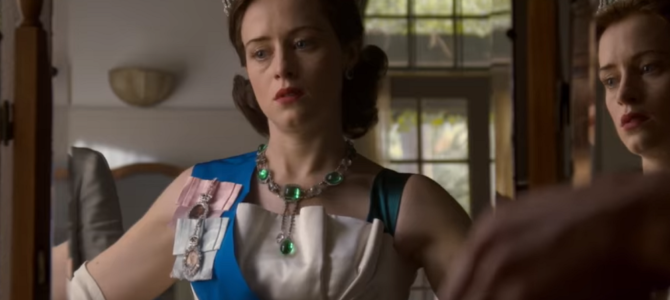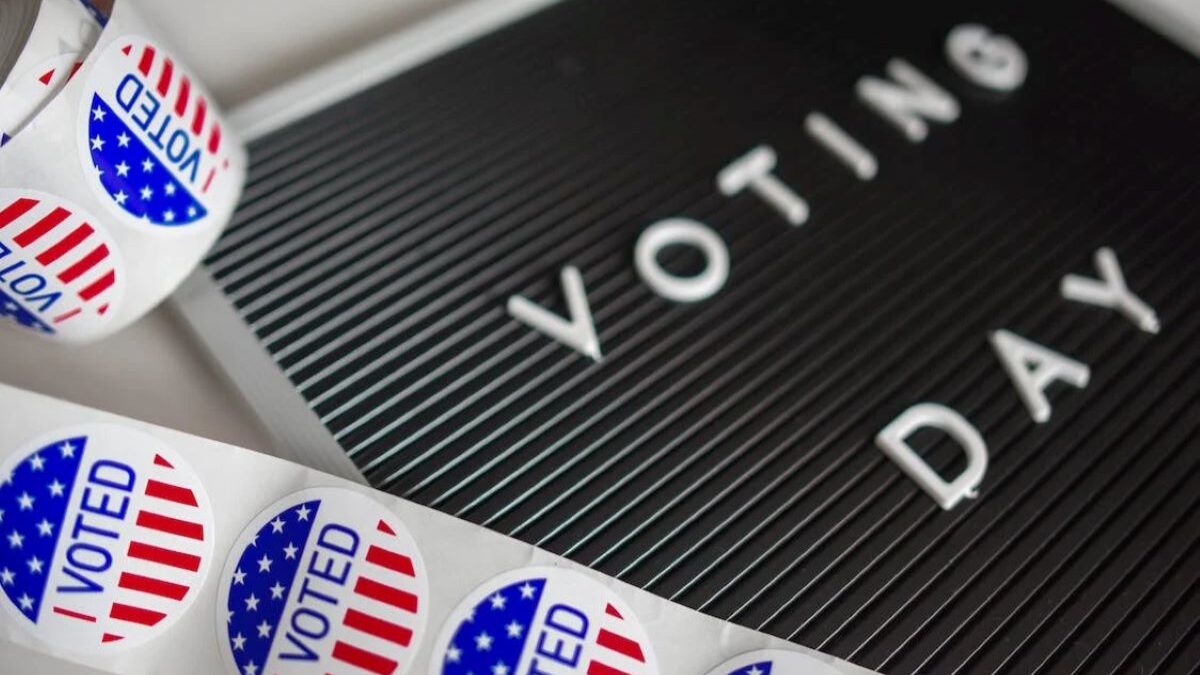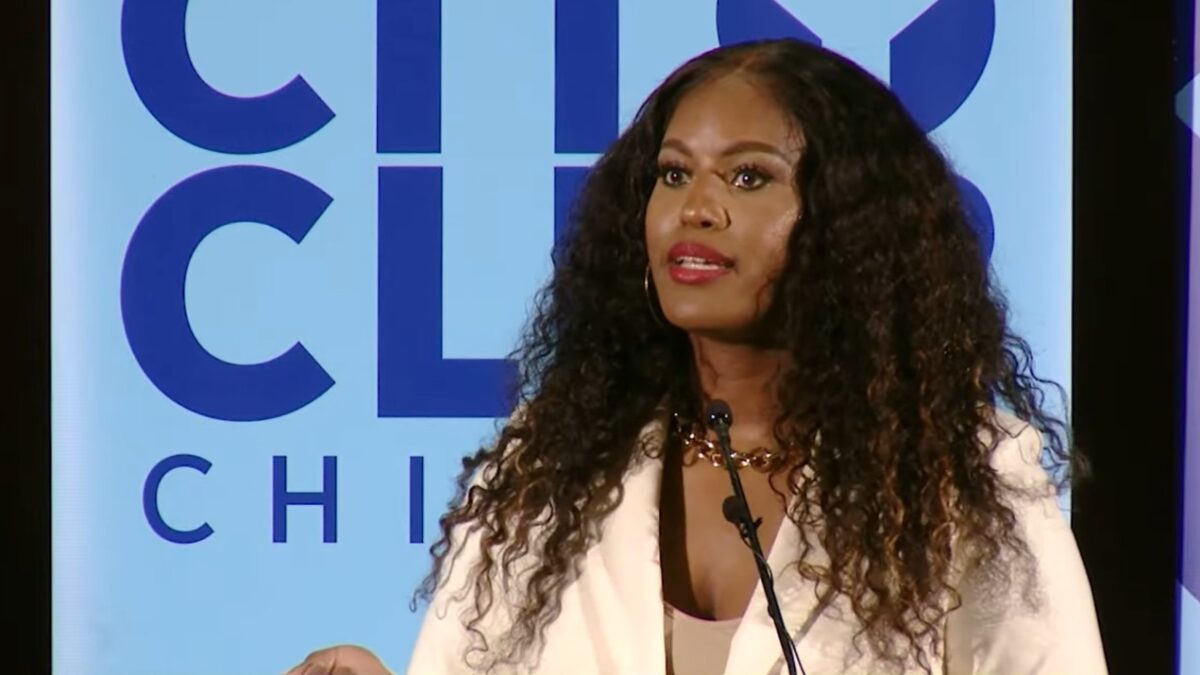
“Monarchy is a calling from God,” says Queen Mary, grandmother of Queen Elizabeth, in the first season of “The Crown,” which has just debuted its second season on Netflix. The ancient woman gives the acting monarch a speech explaining that mankind needs nobility: examples of living statues, more or less, to which to aspire.
Mary observes the monarch is crowned in church in accordance with the will of God. She displays something we need now: the courage of her prejudices. The dialogue insists on showing a lack of respect for other nations, whose monarchies are modern and unserious, in her defense of the Church of England. She has dedicated herself to England and privileges it unstintingly. She has no doubt it is better than other places.
So why should America, by vocation and war a republic, love a show about the British monarchy? It is not merely the great success of the show, but the alternative, too, that we should consider. There is not a show about Ike, nor Reagan. These men had achievements incomparable to monarchs of recent centuries, yet we cannot seem to memorialize them or praise them well in our culture.
This bears directly on the show. The great politician in the show is Winston Churchill, a man of republican pugnacity and unparalleled reputation among politicians, long loved among Americans and still the most well-spoken man we can imagine. Movies are still made about him.
On this show he’s a very old man, and portrayed in an unflattering light. That’s because politicians, however much admired, must also be loved and hated. The future of the world as it impinges on our everyday hopes and fears is involved in their actions and lives. They are perishable, because our need of them is great.
The Monarchy Is a Point of Steadfastness Amid Change
During the long reign of Queen Elizabeth II, about 13 prime ministers have come and gone in Britain, and about a dozen presidents in America. In fact, the current British PM is just now in danger of his party throwing him out. That’s how the executive behaves in a country where politics allows decent lives to be lived reasonably quietly.
In the lifespan of a man, there is so much striving for authority, and so many ambitions that seem world-spanning come and go, most of them unfulfilled and soon forgotten. The monarchy of England is so admired in America not because of pretty babies and attractive marriages—although these things make for great publicity—but because it is one unchanging thing in a world always in motion.
This is the object of the show, to display what it means for someone to dedicate himself for life to being classy. This was most famously stated by the Victorian journalist and political theorist Walter Bagehot: government requires an efficient element, to get the work done, and a dignified element, to remind people that civilization is not radically in flux. The show emphasizes how difficult it is to be constant when everyone else is not, and what a price royalty pays for the people’s admiration. Everyone looks at this young woman becoming a queen and sees nobility. With every trial she becomes stronger.
Of course, a show that cost upwards of $100 million is going to come with certain demands. We want to see for ourselves; we are skeptical; we are curious. This classiest show on the Internet teaches us that we are the vulgar lovers of tabloids: we are the ones who want to see a queen in her underwear and stockings and garters. It is worth wondering whether that is true and why the show is made this way.
The Burdens and Pitfalls of Nobility
Abdicating king Edward VIII is the bad guy in this story. He abandoned the throne and made a scandal of the monarchy just before Adolph Hitler started World War II. He placed all the burden on his brother and family, and badmouthed everyone. The man was not only a celebrity, but vain enough to make public his private letters, replete with execrations of his royal family.
But he is also who we are. He wanted to marry for love and did not wish his family to decide who his bride should be. Who among us would do otherwise? He turns himself into a celebrity for the money. Who among us refuses this kind of attention and wealth? We the audience dislike this man, although we are democrats.
The show’s strength is its skeptical portrayal of nobility. Right after we’re told mere mortals cannot see the holy anointment of a monarch, we do see the archbishop of Canterbury draw in holy oil the sign of the cross on the queen’s bared chest. We cannot refrain in our curiosity, the show teaches.
The abdicating king shows his envy and contempt by reducing this spectacle to mere magic. It is not obvious that he’s wrong; nor that he doesn’t speak for the audience, who on that occasion is an American, a rare presence on the show.
One supposes this is because we do not have the examples of nobility we need. Well, royalty has merely a good batting average. One good brother is a dutiful king, the other a scandal. One good sister is a dutiful queen, the other has an affair that the press of a democratic age must investigate. The people love the miscreant celebrity about as much as they do the virtuous sovereign. And of course, Prince Charles in our own generation is a moral scandal by himself, married another scandal, and might ascend the throne after having graced the pages of the tabloids for a good long time.
We Want to See Grace Under Pressure
Maybe there’s not much future in royalty and we’re hurrying to enjoy it because we know it’s on its way out. What princes today make a show of unimpeachable moral virtue? Or maybe we’re secretly glad to see it off, because its monumental size is unrealistic. The show moves between showing the queen’s moral heroism and scrutinizing every event with democratic skepticism of monarchy.
The American mind as reflected here is divided between admiration and disbelief. Can she be real? And if she is, what if she’s just a fool, making herself and everyone around unhappy?
This is not reality, of course, but a mere fantasy on a screen, so we may delineate certain lessons about our hearts. To begin with, we want to see someone who, faced with all the trappings and temptations of celebrity and the kind of power that accrues to it, would not go mad. Someone who, adored, does not become destructive or self-destructive.
This implies a deeper desire—to see someone who has the burdens of the public thrust upon her, without having sought the spotlight. We sense that those people should be entrusted with authority who do not yearn for it, who do not take it in greed as their possession.
Next, we love this queen as democrats. We see in detail how unimpressive she is from every point of view except that of duty. There alone does she achieve a moral greatness unknown to most of us.
She is not one of the tech geniuses who appear in superhero movies. She is not the creature of hysterical passions that we see in the soap operas that pass for prestige drama. She is dutiful because she is duty-bound, but she could be otherwise. Her moderation seems a choice. She chooses her unimpressive situation and resembles no one so much as the ubiquitous but invisible servants always moving around the important persons.
Someone We Actually Can’t Live Without
Finally, we want to see someone who is irreplaceable. In our lives, everything seems interchangeable with something else and everyone. Here, we see someone who has to give power to tradition, to slow change down, someone who out of conviction refuses modern freedom.
Her antagonists are beautiful, erotic creatures in her own family—nature’s favorites, it would seem. She is comparatively plain. She does not shine; she is not what the English call brilliant. But they are replaceable and she is not. That’s how she makes a difference and that’s why she counts.
The use of realism in the show, from the lavish production to the footage and the look and visual texture of pictures of the times, is aimed continuously to remind us that this is a living possibility, because we so dearly wish it were true of us, too. Of our celebrities do not die so much as disappear, forgotten. Here, we see the opposite—someone almost providential by dint of super-human constancy and endurance.
We have apparently not repealed the part of human nature that needs pride in a dignified conduct in public affairs. The creators of the show do not seem to know whether this is a good thing or not. They exaggerate the conflicts of the royal house to bring out the inhuman price asked of royalty, as though to warn us off. They draw a portrait not so much of a queen as of a nun.
But the audience knowa what they love and may ignore the complications. We shall now learn whether the second season elucidates this conflicted portrayal of nobility, as well as whether it can charm and bewitch like the previous one did. After all, royalty is partly about mystery and elusiveness, not a regular schedule and binge-watching.









